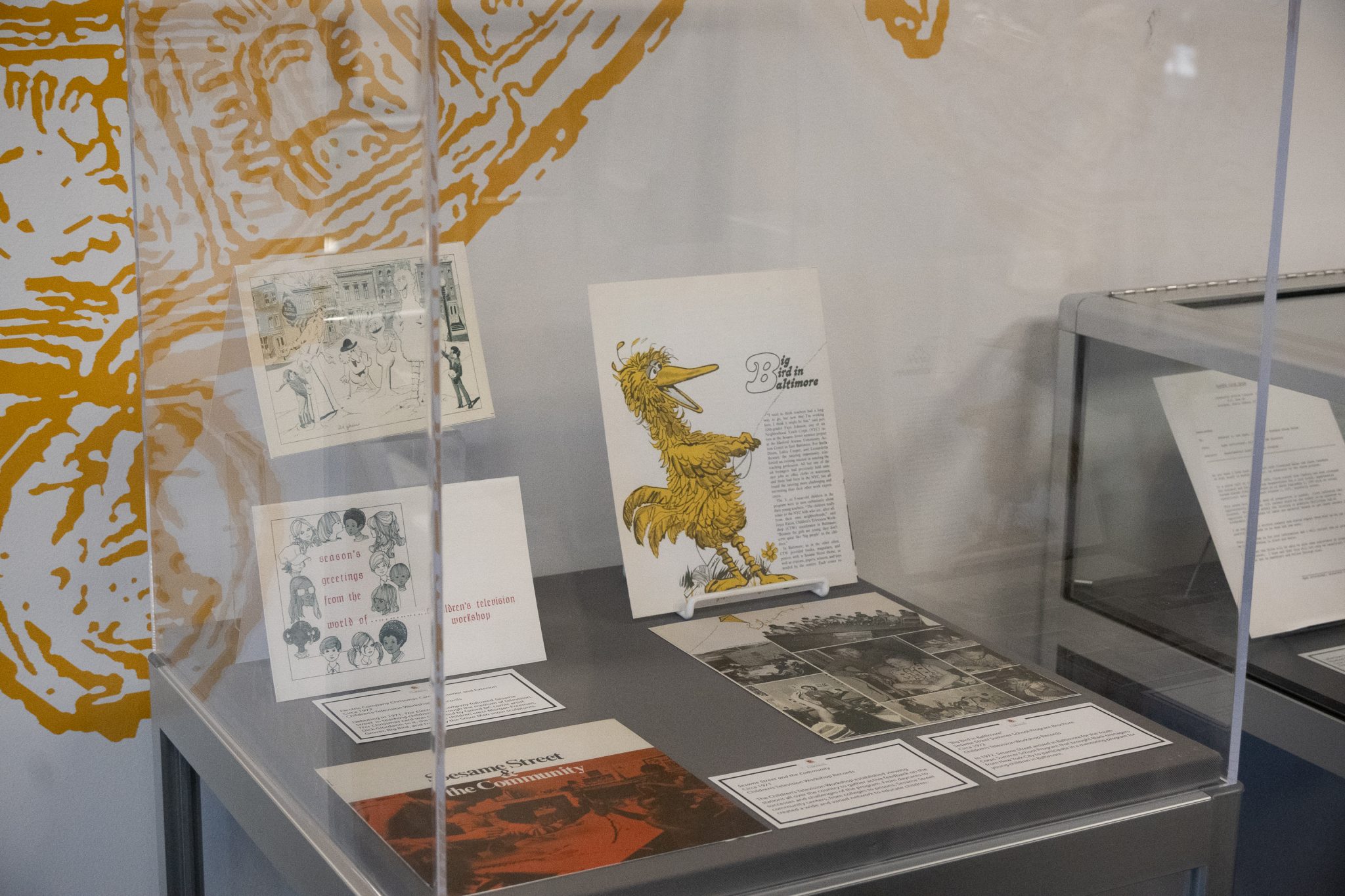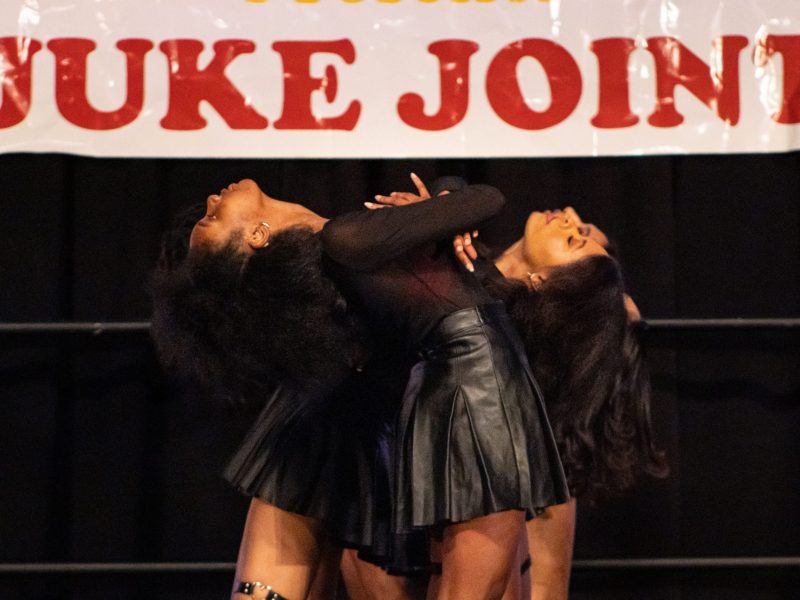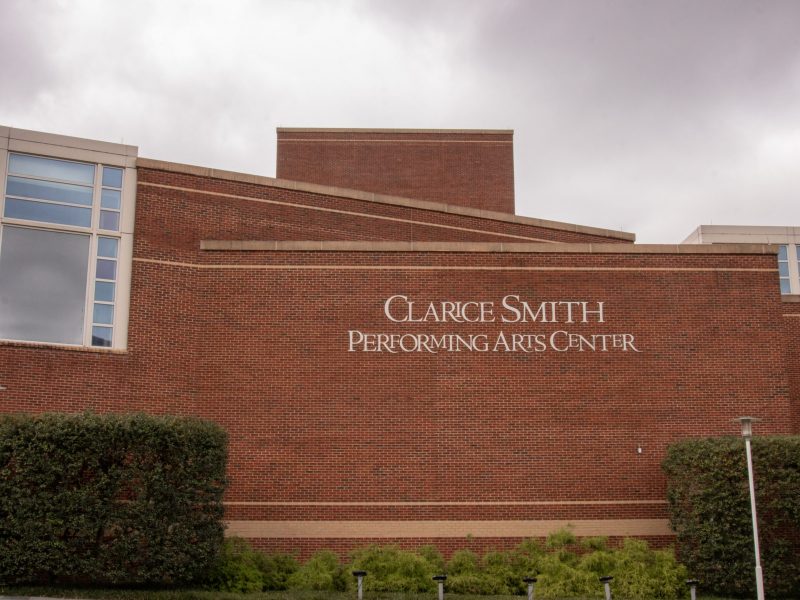By Kya Amadi and Justin Mehlbrech
Hornbake Library unveiled its exhibit, “The UMD Sesame Street Archival Showcase,” Wednesday, which explores the educational experience and cultural impact of the beloved puppet show Sesame Street.
A quaint corner of archives, featuring documents, puppets and photographs, celebrates the groundbreaking phenomenon of Sesame Street, exploring its humor and nostalgia just as much as its impact.
Susie Tofte, an archivist at The Jim Henson Company, captures Jim Henson’s legacy and presence at the University of Maryland, more than 60 years after his graduation. At Wednesday’s ceremony, Tofte gave a speech about Henson’s life and artistry.
Tofte expressed her fondness for Henson’s dedication to his craft and the timelessness of his characters.
From performing on television to pitching The Muppet Show for years until it aired in 1976, Tofte reflected on Henson’s tenacity in making his goals a reality.
“He was not afraid to try new things,” Tofte said. “That’s a really great quality to have in life.”
[NPR’s Peter Sagal talks future of the humanities at The Clarice]
Paul Cote, a senior lecturer in the English department, attended the exhibit’s premiere. He is teaching a course this semester titled “The Henson Family as Filmmakers,” which focuses on Henson’s work beyond Sesame Street and his family’s careers in the filmmaking industry.
Heather Henson, Jim Henson’s daughter, founded Handmade Puppet Dreams, a company that showcases new puppeteers who bring their creations to life through film. Through her collaboration with the Green Feather Foundation, Henson assists in production efforts for independent puppeteers to create work for the screen.
Cote regards Henson’s work as a callback to her father’s artistic activism, being “outside of what commerciality is supposed to look like.”
Chad Infante, an assistant professor in the English department, helped organize the exhibit. He said part of his work at this university is to spotlight the work of notable alumni such as Henson, Aaron McGruder and Jeff Kinney.
“The real goal of this exhibit was to inspire students to think about their time here as students on UMD’s campus, by highlighting both the materials that we have that they could access, but also the legacies of former students,” Infante said.
Wednesday’s showcase highlighted screenings of Sesame Street in Jamaica during the 1970s, an effort to introduce children in rural areas to television and determine if the show’s stories could connect across cultures. A blend of photographs and documents, the display celebrates Sesame Street’s unquestionable international impact and cultural reach.
Originally from Jamaica, Infante found the archives on the project particularly intriguing.
“It really allowed me to catch a glimpse of the people I care about in the work,” Infante said.
[Love Island alumni at UMD reaffirm the series’ longevity]
Efforts continue to bring Sesame Street to Jamaican children. The Sesame Workshop is currently partnering with various organizations to bring the educational television episodes to communities across the country.
Infante thinks Sesame Street also aims to make its educational content personal.
“They draw on specific cultural traditions of the place they’re in,” Infante said.
Alex Buckton, a library and information science graduate student aspiring to work in archives and special collections, remarked how cool it was to see Roosevelt Franklin, the first Black Muppet, at the event.
Roosevelt Franklin’s character was controversial, loved by some and criticized by others. Sesame Street actor Matt Robinson, his creator and original voice actor, saw the puppet as a way for the show to reach Black children.
“Somewhere around four or five, a Black kid is going to learn he’s Black,” Robinson said in a 1971 interview. “He’s going to learn that’s positive or negative. What I want to project is a positive image.”
Roosevelt Franklin’s presence in the show was highly debated — many thought his character was stereotypical and one-dimensional. The puppet ultimately made his last appearance in 1977. But for those who are interested, they can learn about his history in the exhibit.
“I feel like everyone would love to see Franklin,” Buckton said.
The planning of the event helped inspire Cote to create his course and take advantage of the already existing relationship between this university and Henson. He hopes to have multiple members of the Henson family speak to his class during the semester.
In speaking to some family members for course preparation this past summer, Cote found that “just meeting your heroes was really something special.”
“The UMD Sesame Street Archival Showcase” will remain open until Dec. 20.



